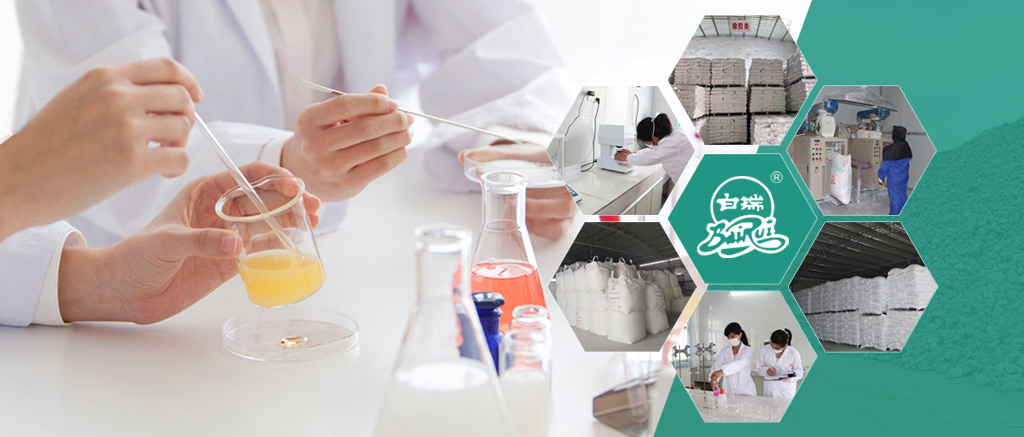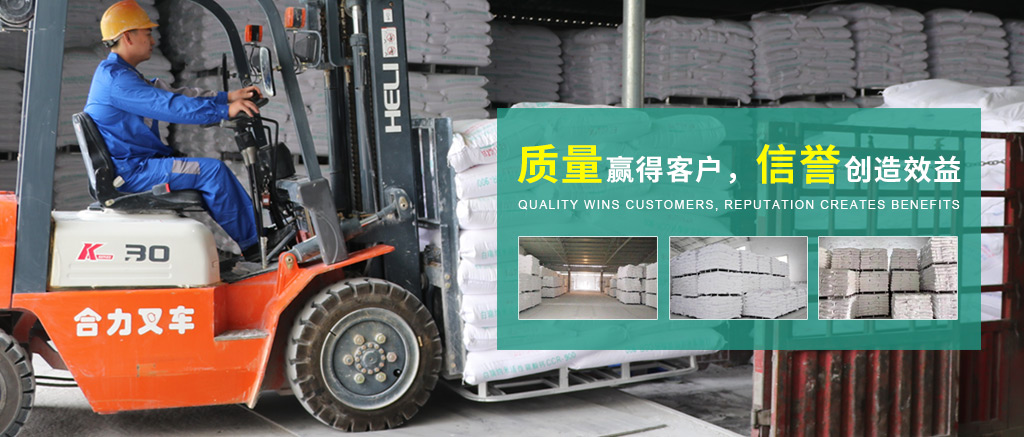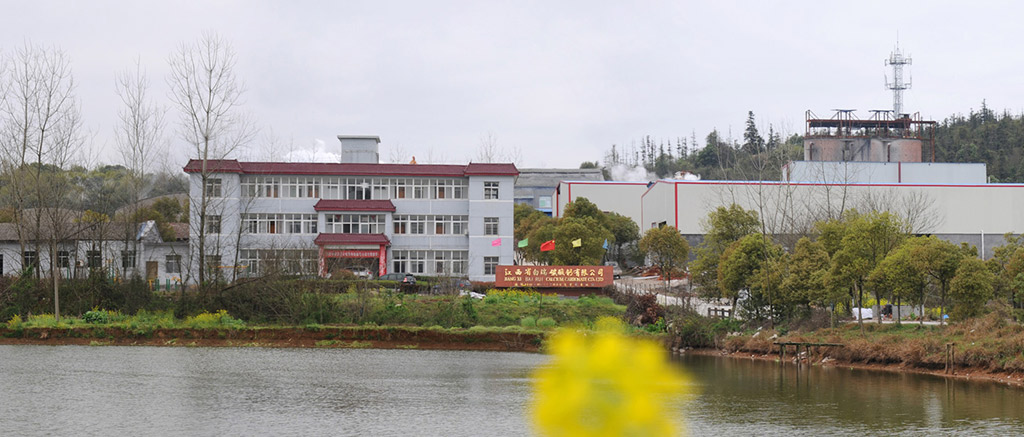Common problems and solutions of nano calcium carbonate in silicone adhesive
Time: 2019-07-26
Calcium carbonate almost accounts for more than 70% of the annual use of inorganic powder, is the plastic industry in the largest number of use, the most widely used powder filler, its low price, excellent processing properties and many other advantages become the plastic processing industry's preferred material. In addition to the field of plastics, the application of calcium carbonate in silicone adhesives is also increasing.
Usually, a small amount of nano-calcium carbonate (CCR) is added in the preparation of silicone glue to strengthen, reduce costs, and keep the colloid in good appearance. However, the following problems need to be noted in the application process of nano-calcium carbonate:
1. Moisture content causes powder agglomeration
When the water content of calcium carbonate is higher, the hydroxyl group (OH) on the surface of the particles increases, and the aggregates show a tendency to coagulate with each other. Under the action of liquid gathering silane, a three-dimensional network is formed, which increases the viscosity of the rubber compound and forms 1 ~ 3mm particles in the base material, resulting in prolonged mixing time.
Therefore, calcium carbonate powder should be dried before use, and the moisture content should be controlled below 0.8%.
2. Secondary agglomeration results in larger particle size
Secondary agglomeration is generally easy to appear in nano-calcium carbonate products with small particle size. When the particle size of nano-calcium carbonate is reduced to 40-60nm, the specific surface area of the particles increases (22-34m2 /g), the cohesion is enhanced, and it is easy to form a compact hard group, that is, a porous secondary particle. In the kneading process of silicone rubber, the secondary particles are difficult to disperse evenly, and the number of particles is large, and the surface of the product is easy to appear particles, and even "pockmarked" or "fog" phenomenon. Therefore, it is necessary to disperse through one or more grinding, or extend the kneading time.
3, PH value is too high catalytic curing
Too high Ph value will reduce the storage stability of silicone adhesive, the higher the Ph, the faster the silicone adhesive curing. Storage stability is a very important quality index of silicone rubber products, in theory, the PH value of calcium carbonate is weakly alkaline, you can use weak organic acid or organic acid salt, the surface coating, the surface of calcium carbonate has a certain neutralization effect, the PH value is controlled below 9.5.
4. Insufficient or excess surface treatment
When the surface treatment is insufficient, the surface of calcium carbonate particles is polar part, which is difficult to be compatible with non-polar organic matter in silicone rubber, resulting in dispersion difficulties, and it is difficult to "eat powder" to extend the kneadingtime when mixing occurs. Even after full mixing, due to the lack of adequate organic surfactant coating on the surface of calcium carbonate, the interface contact probability between silicone rubber system and polar calcium carbonate is significantly increased. There are more hydroxyl groups on the surface of calcium carbonate, and these groups can form hydrogen bonds (physical adsorption) with the Si-O bond in the liquid phase silicone rubber molecular chain, which will produce two different effects: on the one hand, it will lead to the improvement of the physical and mechanical properties of vulcanized rubber, on the other hand, it will also produce structural phenomena within the system, resulting in the storage stability of the rubber.
When the excess surface treatment agent has an adverse effect on the production of silicone adhesive, it may cause the decline of bonding performance and the physical properties of the product.
Impact on bonding properties:
Because silicone adhesive is a kind of viscose product, it is required to have a good adhesive property with the surface of the construction medium. In order to improve this adhesive property, silane coupling agent is used to improve and enhance the silicone adhesive formula. This adhesive property depends on the active group in silane coupling agent and the surface of the construction medium to form physical adsorption by van der Waals force or hydrogen bond or form chemical bond by reaction of groups. When the calcium carbonate surface treatment agent is excessive, the number of organic groups increases significantly (especially the nano-calcium carbonate products with organic hybrid as the main surface treatment agent), and some groups in the silane coupling agent will bond with the organic groups in the calcium carbonate surfactant molecules, thus affecting the bonding performance on the construction interface.
Impact on physical properties of products:
Excessive surface treatment agent reduces the probability of direct hydrogen bonding between the surface of calcium carbonate particles and the silicone rubber system, which mainly depends on the combination of surfactant organic molecules and the system. Because calcium carbonate surfactant molecules are mainly composed of long chain molecules, the binding force between these organic molecules is relatively flexible, so the cured silicone rubber products have low modulus. If there is an appropriate part of the surface of calcium carbonate can be hydrogen bonded with the silicone rubber system, the network structure of the system is stronger and the cohesion is stronger. The tear strength of such products will be improved. In addition, the short chain organic matter in the surface treatment agent is volatile, and when excessive processing, the volatile content of the product will increase, so that the low boiling point organic matter extracted during the vacuum kneading process of silicone rubber will increase.
5, affect the storage stability of dealcoholized rubber
This problem has occurred in some silicone rubber enterprises, which has brought great confusion to nano-calcium carbonate and silicone rubber enterprises. Due to the production process and product characteristics of silicone rubber products determine that the finished product of silicone rubber products after adding crosslinking agent must be sealed storage, once the quality of the finished product is difficult to rework the finished product, resulting in greater losses.
According to relevant data, dealcoholized silicone adhesive generally adopts high hydrolytic activity silane coupling agent, in the absence of hydroxyl and water scavagant, the trace water in calcium carbonate and silane coupling agent are easy to react to form free alcohol, which causes the storage stability and vulcanization performance of the system to decline. In particular, products with insufficient surface treatment absorb moisture very quickly during storage, and it is difficult to exclude the moisture of the nano-calcium carbonate secondary particles. Therefore, it is reasonable to believe that the surface of calcium carbonate particles under this condition has more water and hydroxyl group, which correspondingly forms a local microscopic network structure with calcium carbonate as a node. In severe cases, local microscopic structure and stress concentration occur. Form more evenly distributed fine "particles" (actual contractions or protrusions). This "particle" also has a strange phenomenon that when the system temperature rises, it will gradually disappear, which can be explained as: as the system temperature rises, the molecular thermal movement intensifies, so that the microscopic cross-linking bond is destroyed, and the local stress is weakened or disappeared, so the silicone rubber surface and internal molecular structure return to normal state, and the temporary "particle" disappears. When the temperature of the system is lowered, the "particles" reappear in the original position.







 Home
Home  News
News


